#Emissions
Japan's Minor Scandal: Mazda, Suzuki, Yamaha Apologize for Improper Vehicle Testing
Japan’s automotive industry finds itself in the midst of a minor scandal. Last year, the Japanese government ordered manufacturers to investigate their operations after it was revealed that Subaru and Nissan conducting improper testing for decades. Initially, the issue seemed to revolve around a widespread laziness that allowed uncertified employees to conduct final inspection procedures. However, Subaru later admitted to employees falsifying emissions data.
While the problem does not appear to be an outright corporate conspiracy, some inspectors still decided to implement a policy they knew was against the rules to avoid questions from top brass. Likewise, senior employees advised inspectors to change test results for each vehicle that failed to meet internal quality control standards.
On Thursday, the Japanese government announced the inspection issue haS also touched Mazda Motor Corp, Suzuki Motor Corp and Yamaha Motor Co (which builds motorcycles and automotive engines). All three companies are now faulted for improper testing procedures and compliance failures.
EPA and NHTSA Officially Release Fuel Economy Plan, California Decidedly Pissed
After months of discussion, circulating drafts, and arguing with the State of California, the Environmental Protection Agency and National Highway Traffic Safety Administration formally unveiled their plan to rewrite the existing corporate average fuel economy (CAFE) rules and replace them with something far less stringent.
The proposal would freeze the presiding standards in 2020 under the “Safer Affordable Fuel-Efficient (SAFE) Vehicles Rule for Model Years 2021-2026 Passenger Cars and Light Trucks” plan, which is a mouthful.
It also moves to revoke California’s authority to set its own mandates, as predicted. The Golden State made it clear that it wants to maintain the Obama-era limits. However, the proposal includes a section emphasizing the importance of a single national standard, saying it would seek to withdraw the waiver granted to California in 2013.
“Attempting to solve climate change, even in part, through the Section 209 waiver provision is fundamentally different from that section’s original purpose of addressing smog-related air quality problems,” reads the proposal. “When California was merely trying to solve its air quality issues, there was a relatively-straightforward technology solution to the problems, implementation of which did not affect how consumers lived and drove.”
States' Rights: EPA Seeks '50-State Solution' for Fuel Rules, California Happy to Settle for 16
Andrew Wheeler, the acting head of the Environmental Protection Agency, said the United States needs a single standard for fuel efficiency for cars and trucks on Tuesday. It’s a sentiment shared by Mary Nichols, head of California Air Resources Board, but it’s likely to put the two at odds. Wheeler said the pair shared that singular goal based off a meeting held last week, but California isn’t seeking the same benchmarks as the current administration.
The state objects to the EPA’s plan to weaken Obama-era efficiency targets, and is currently in the midst of a political and legal battle with the agency. However, Wheeler confirmed that, under his watch, the group would continue seeking a “50-state solution.”
Replacement EPA Boss on Board With California Gas Confab
Following Andrew Wheeler’s appointment as acting head of the Environmental Protection Agency, he extended an invitation to the California Air Resources Board to discuss emission regulations — a matter which former EPA administrator Scott Pruitt seemed less inclined to discuss with the state.
Mary Nichols, chairman of the board, said Wheeler reached out to state officials and the pair agreed to hold a meeting in Washington. It’s a slight easing of tensions in the cold war between D.C. and Sacramento.
Volkswagen Will Continue Shelling Out Dieselgate Dough
Even though the United States has already penalized and fined the crap out of Volkswagen for selling vehicles equipped with emissions-cheating defeat devices, the company remains in hot water. Earlier this month, Germany imposed a fine of $1.2 billion over the “dieselgate” scandal.
“Volkswagen accepted the fine and it will not lodge an appeal against it,” the company said. “Volkswagen, by doing so, admits its responsibility for the diesel crisis and considers this as a further major step towards the latter being overcome.”
On Monday, the U.S. Ninth Circuit Court of Appeals also upheld a $10 billion settlement between Volkswagen and the owners of 2.0-liter TDI vehicles that came equipped with the illegal software. The ruling pertains to roughly 475,000 customers. VW agreed to offer owners of the 2.0-liter diesels between $5,100 and $10,000 in compensation, in addition to the value of the vehicle.
Nissan Confesses to Falsified Testing Data for Japanese Vehicles
After Volkswagen’s diesel emissions scandal came under public scrutiny, numerous industry analysts prophesied it would not be an isolated incident. Cheating had been done in the past, and would likely continue into the future. In fact, numerous experts claimed every major automotive manufacturer probably engaged in illicit behavior to some degree. With so many laws and employees who may be interested in shirking them, it’s bound to happen time and time again.
On Monday, Nissan Motor Co. admitted it improperly measured exhaust emissions and fuel economy for 19 vehicle models sold in Japan. Late last year, Nissan and Subaru both confessed that they had allowed uncertified technicians to conduct finial vehicle inspections. Initially, the issue seemed like a harmless oversight, but in some cases the failing went unnoticed for decades, resulting in falsified data as a way to cut corners. Both Mitsubishi Motors and Suzuki admitted in 2016 that they exaggerated the fuel economy of their vehicles by cheating on tests.
This is a Mess: EPA Begins Quest to End California's Fuel Waiver
The Trump administration has enacted phase two of its plan to revise Obama-era rules designed to cut pollution from vehicle emissions. In a proposal sent to the White House Office of Management and Budget on Thursday, the Environmental Protection Agency announced its intention to rescind the California waiver that separates it from the federal standards the state uses to regulate greenhouse gas emissions from automobiles.
Since allowing California to set its own emission standards would effective split the country’s auto market, the EPA has been clear that its ideal solution would be to cut a deal with the Golden State. Agency head Scott Pruitt previously said California “shouldn’t and can’t dictate [fueling regulations] to the rest of the country,” but acted in a manner that suggested a compromised could be reached.
This was followed by a lawsuit filed by 17 U.S. states, along with the California governor’s office, California attorney general, and the California Air Resources Board (CARB), alleging that the EPA had “acted arbitrarily and capriciously” in its decision to roll back the previous administration’s decision. While the odds are good that the Trump administration wasn’t ever interested in bending to California’s more stringent pollution policies, this was likely the point of no return — squashing any hope for meaningful negotiations.
Automakers to White House: Make a Deal With California on Fuel Economy
Despite pressuring Donald Trump to lower corporate fuel economy mandates since practically day one of his presidency, automakers are now urging caution. The U.S. Transportation Department has drafted a proposal that would freeze vehicle requirements at 2020 levels through 2026, the Environmental Protection Agency’s lead administrator made a public case for rolling back mileage targets, and the White House seems ready to help car companies lower the bar.
Automakers seem to have won, so why the change of heart?
Sergio CONFIRMED as Trump's 'Favorite' Auto Exec, Hackett and Barra DESTROYED
Ten automotive executives met with President Donald Trump this week, hoping to find ways to increase domestic production and mitigate the coming changes to corporate fuel economy regulations. The meeting, held in the White House’s Roosevelt Room, included General Motors’ Mary Barra, Ford’s Jim Hackett and Fiat Chrysler’s Sergio Marchionne. While a large portion of the event was spent discussing the administration’s attempt to roll back established fuel economy rules, Trump was focused on returning manufacturing jobs to the United States.
The president noted that FCA’s decision to spend $1 billion in order to expand truck assembly in Michigan made Marchionne more appealing than his contemporaries. “Right now, he is my favorite person in the room,” Trump said.
Volkswagen's Former CEO Finally Charged Over Diesel Cheating Scandal
Former Volkswagen CEO Martin Winterkorn has been charged by U.S. prosecutors with conspiracy and wire fraud, according to an indictment that was unsealed in a Michigan federal court on Thursday. For those of you who have been following the Dieselgate scandal from the beginning, this has been a long time coming.
Winterkorn has been at the epicenter of the emissions-cheating issue since before VW’s earliest admissions and was swiftly removed from his post as the automotive group’s chief executive in 2015. He also had a major falling out with ex-supervisory board chairman Ferdinand Piëch after being confronted on the emissions issue during the Geneva Motor Show.
The two had previously held a very close relationship but a power struggle within the organization appeared to have been brewing for quite some time, making the scandal an important turning point. Piëch became vaguely accusatory of Winterkorn in the aftermath and eventually cut ties with the company and, by extension, his family. All the while Winterkorn was under investigation in both the United States and Germany.
Bosch Claims It Can Save Diesel With New Exhaust Tech
Bosch says its engineers have developed a new diesel exhaust system that could lower emissions to a point where governments no longer have to worry about banning the fuel.
It’s not a defeat device.
If you’ll recall, Robert Bosch GmbH found itself caught up in Volkswagen Groups emissions scandal. Owners of affected cars accused the company of helping develop the illegal software that allowed the vehicles to fool environmental regulators. Bosch launched an internal probe as a sign of good faith and has not officially been charged with any wrongdoing by federal authorities.
That’s good news for the company, because any attempt to promote diesel-friendly equipment would have been overshadowed by a preexisting scandal — especially something as miraculous-sounding as this.
Porsche Powertrain Boss Arrested in Germany: Report
Jörg Kerner, Porsche’s head of powertrain development, has reportedly been arrested by German authorities for playing an alleged role in Volkswagen Group’s diesel emissions scandal.
Kerner, who sources say is being held on remand due to the potential of being a flight risk, was appointed director of Porsche’s powertrain development division in October 2011. Before that, Kerner worked for supplier Robert Bosch GmbH from 1986 to 2004, after which he oversaw development of engine electronics and software for Audi.
Fiat Chrysler Can Look Forward to a Big Summer Eco Payout
When Fiat Chrysler Automobiles regails the class with a “how I spend my summer” story this fall, expect some mention of handing over large sums of money to state and federal governments.
The U.S. Department of Justice and California Air Resources Board want the automaker to make things right after accusing it of polluting the nation’s air via its 3.0-liter EcoDiesel V6 engines. Some 104,000 Jeep and Ram vehicles from the 2014 to 2016 model years contained emissions control devices not revealed to the Environmental Protection Agency, which came down hard on the automaker after their discovery. According to FCA’s lawyer, the settlement could come this summer.
What does the DOJ want? According to an earlier settlement offer sent to the automaker, the levelling of “very substantial civil penalties” is the only way to ensure FCA learns its lesson.
German Court Says Towns Can Officially Ban Diesel Vehicles Whenever They Want
Thanks to years of governmental promotion, Europe is still awash with diesel-powered passenger vehicles. However, in the wake of emission scandals and research suggesting diesel fumes might not be all that great to inhale, the region has changed its mind. It has gotten to a point where entire countries are now aiming to ban all internal combustion engines as local municipalities try to put the kibosh on diesels as soon as possible.
In Germany, birthplace of the diesel engine, this led to many asking if towns even had the right to regulate what people drove. According to a recent ruling from the nation’s highest administrative court, they absolutely do. With a precedent now set in Europe’s auto manufacturing hub, citywide diesel bans are likely to catch on — not only in Germany, but across the continent. Our condolences if you’re living east of the Atlantic and wanted to sell your diesel secondhand.
Fiat Chrysler to Stomp Out Diesel Across Its Lineup, Report Claims
The popular thing among automakers last year, besides the incessant preaching of “mobility,” was the pledging of allegiance to an electrified future. This year, it seems diesel fuel is the bogeyman all automakers must reject. We’ve already told you about Porsche’s abandonment of the blacklisted power source. Now, it’s Fiat Chrysler’s turn.
Though unconfirmed at this time, the Financial Times (subscription required) reports that FCA’s mid-term plan, due out this June, will announce the dropping of diesel across its lineup by 2022. If you’re currently wondering how you’ll tow a horse trailer using a battery, don’t get too upset just yet.





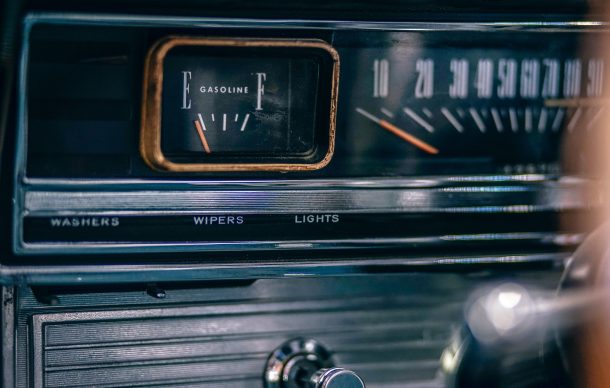

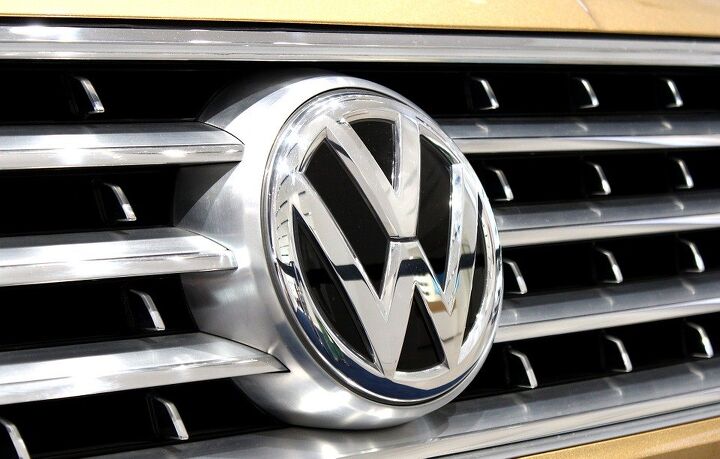



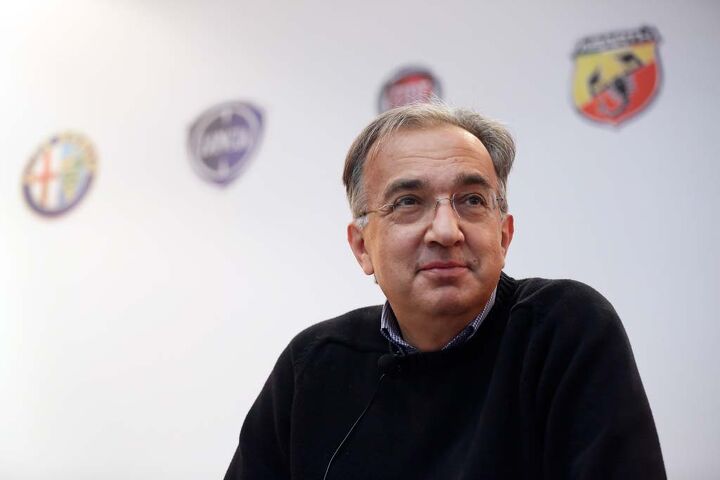
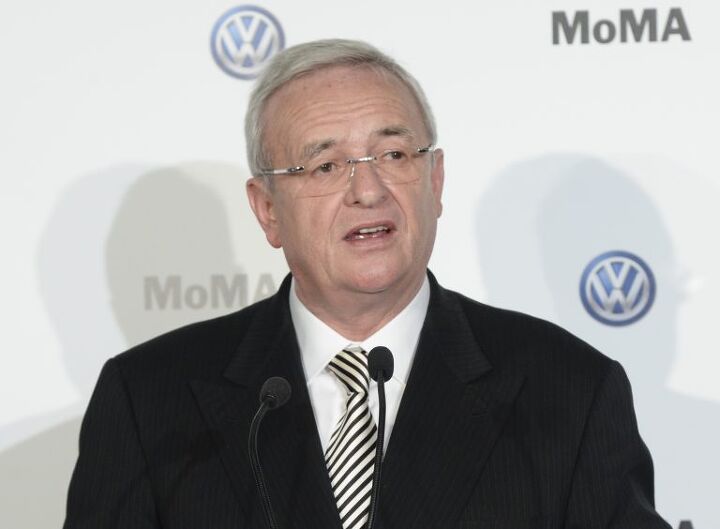



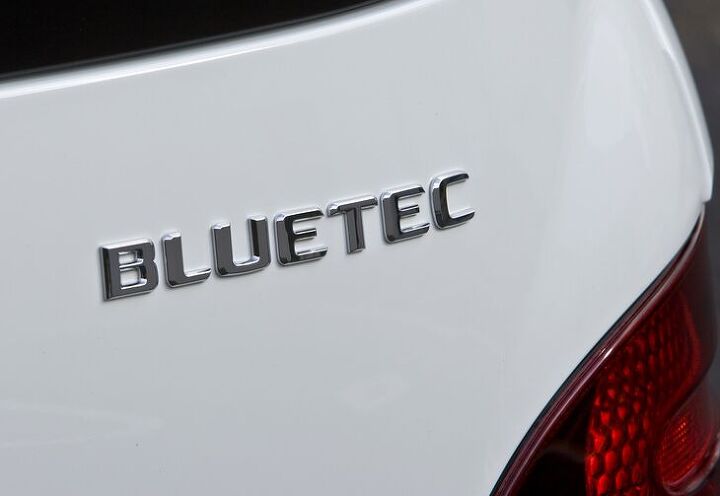













Recent Comments